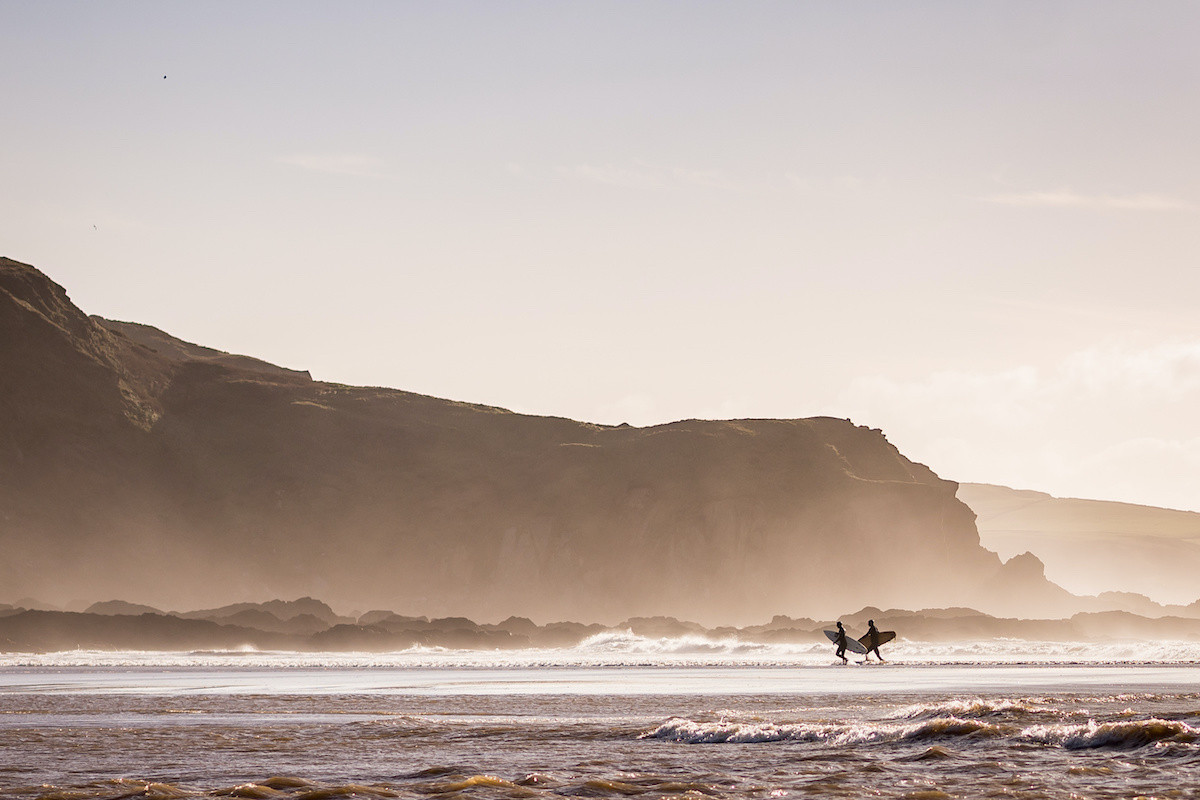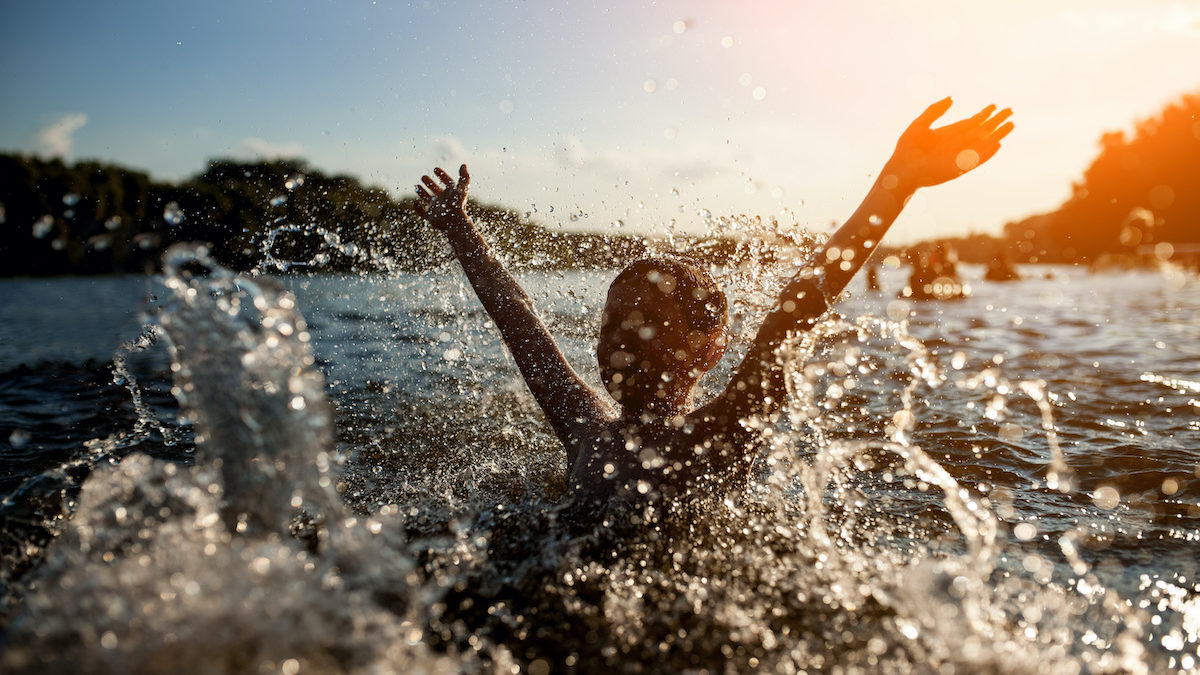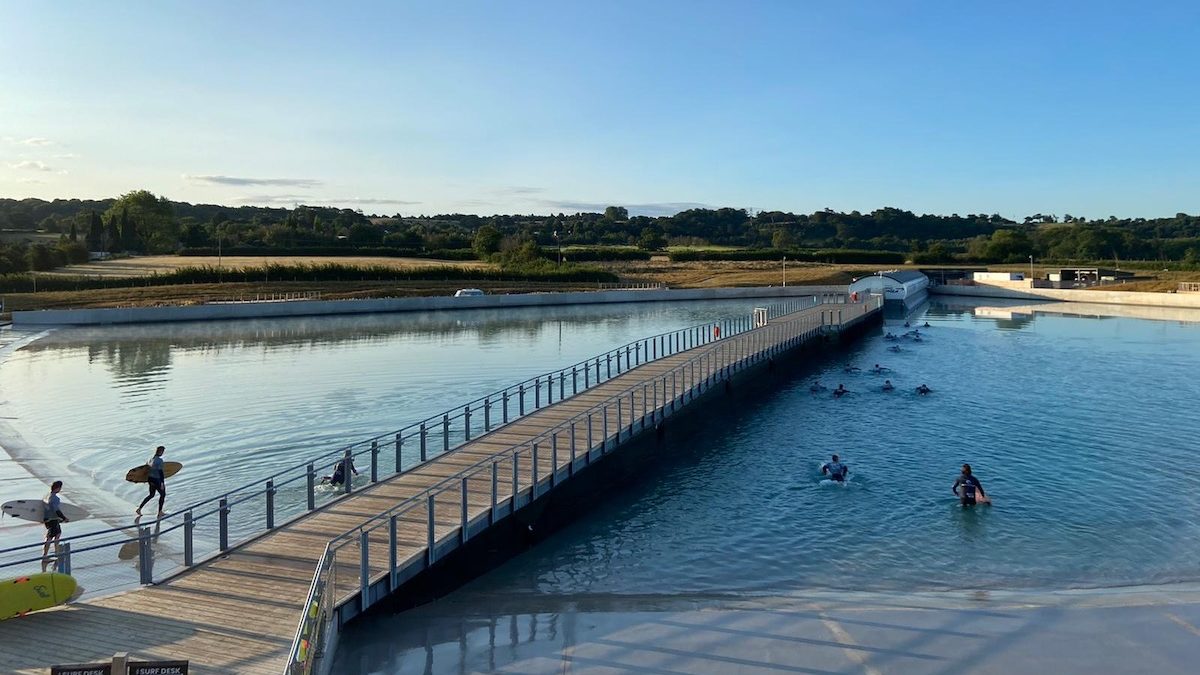Blue Health: How the Ocean Can Benefit You Both Physically and Mentally

The positive impact of nature on our wellbeing has become even more pronounced since the pandemic and the mass exodus from city life it spurred on. And with this increase in people moving to the countryside in search of solace, also came a surge in people wanting to move to the coast. In fact, searches on Rightmove at the beginning of 2021 showed Cornwall, and its miles of scenic coastline, had overtaken London as the most searched-for location on the property site.
But, while we regularly hear of nature therapy, people are less likely to hone in on the super power of water as a standalone health aid. Slowly blue health — the idea that being near or on water is good for physical and mental health — is washing through society though, bringing with it waves of change that are positive and progressive.
“There are cognitive and emotional benefits that we derive every time we spend time by water,” writes Wallace J Nichols in his 2014 best-selling book Blue Mind, which kicked off this recent surge of interest in the effects of water on our wellbeing. “It’s chemistry, it’s biology, it’s physiology. It’s deeply personal but it’s also strong science.”
So, What’s the Science Say?
A 2016 study found that views of blue spaces are associated with lower levels of psychological distress, more so than with green spaces. Even the colour itself is linked to calmness and serenity. As a result of installing blue lights, a railway line in Tokyo saw an 84 percent reduction in suicides. Research also shows that surfers report significantly fewer symptoms of depression and anxiety and that living by the coast leads to improved physical and mental health.
Think about it. How often are you drawn to the seaside for a holiday? Most people, be it through nostalgia or positive association, think of the coast as a calming environment, and one they actively want to visit for escapism.

Considering salt water has been used in medicine for centuries, it’s not surprising. Hippocrates coined the term thalassotherapy to describe the healing effects of seawater, and wrote about how it reduces inflammation by bringing in minerals that the body uses to boost immunity. Similarly, the sea contains magnesium, an element that is clinically proven to calm the mind. Salt water also eliminates toxins, not to mention it helps to normalise blood pressure, too.
Ever since I started surfing seven years ago, I’ve used immersing myself within ocean environments to manage my anxiety. Aside from the fact that being in the waves means I have to focus purely on the power of nature, the soft fascination at play from having wider horizons allows my mind to feel clearer.
In his book, Nichols writes that there is less intentional focus in play at the coast, and soft fascination allows the mind to wander and a person to “drift” with effortless attention. “It’s the antidote to what we refer to as ‘red mind’, which is the anxious, over-connected, and over-stimulated state that defines the normal of modern life.”
It’s due to this that researchers have identified two kinds of human attention: directed and involuntary. Water plays into our involuntary attention, stimulating it and allowing our directed attention time to rest which, in turn, helps our minds to restore and relax.
Blue Health in Reality
In fact, it’s exactly why Nick Hounsfield dedicated 10 years to founding The Wave, an inland surfing lake in Bristol. “My happy medium is being around water,” says Hounsfield. “I’ve always had this profound connection, and it’s become a place that I can reflect, a place I can go to when I’m traumatised or anxious. Bringing the waves inland was because, fundamentally, I knew it was something people could really benefit from.”
Hounsfield tells me that he realised the power of blue health when he was involved in the adaptive surf community seven years’ ago, but also since having a stroke in February 2020. After losing the ability to speak and some of the mobility in his right hand, he used water to help himself recover.

The Wave
“Just being around water would supercharge my recovery and help in the repairing of my brain,” he says. “We’d [The Wave] only just released a blue health report, pulling together evidence-based research and, suddenly, I was seeing it in action everyday. Every time I got in the water, I felt better.”
Hounsfield talks about how it helped him to piece together a sense of calm, and allowed him to process what was going on in his brain. “It was a supportive environment, both physically and mentally,” notes Nick. “It was as though it helped the neurons connect back together.”
Speaking of this inherent physiological response, blue health coach Lizzi Larbalestier, who coaches her clients on the beaches of Cornwall, tells me how people breathe differently around water, which means their nervous system is in a more balanced state. “Rather than being in a fight or flight space, they are in a space of coherence,” she says. “The coast is expansive and not restrictive. As a coach, I work with the environment to encourage people to think differently. Your neurochemicals are responding in a specific way to being out in a blue space. It promotes less formality and encourages people to be more open.”
Embracing the Concept
Acceptance surrounding blue health is gaining momentum — perhaps due to the Attenborough effect, and the recent lockdowns. “It’s important to recognise how fragile our ocean is and how we are linked to it,” says Larbalestier. “It’s accessible to everybody but not separate to them – our health and the ocean health is one of the same.”
Larbalestier is passionate about making blue health accessible to all, and raises awareness of the fact it can be found all around us in everyday life. You can live in urban environments, for example, and still find the solace and power of blue around you. “Go to aquariums, fountains, streams, or even a swimming pool,” she explains. “Even if my preference is wild water, the virtual blue also helps. You can find blue health through art or simply the lyrics of a song.”
You might not need to join the mass exodus then after all; you can just bring the ocean to you.


















